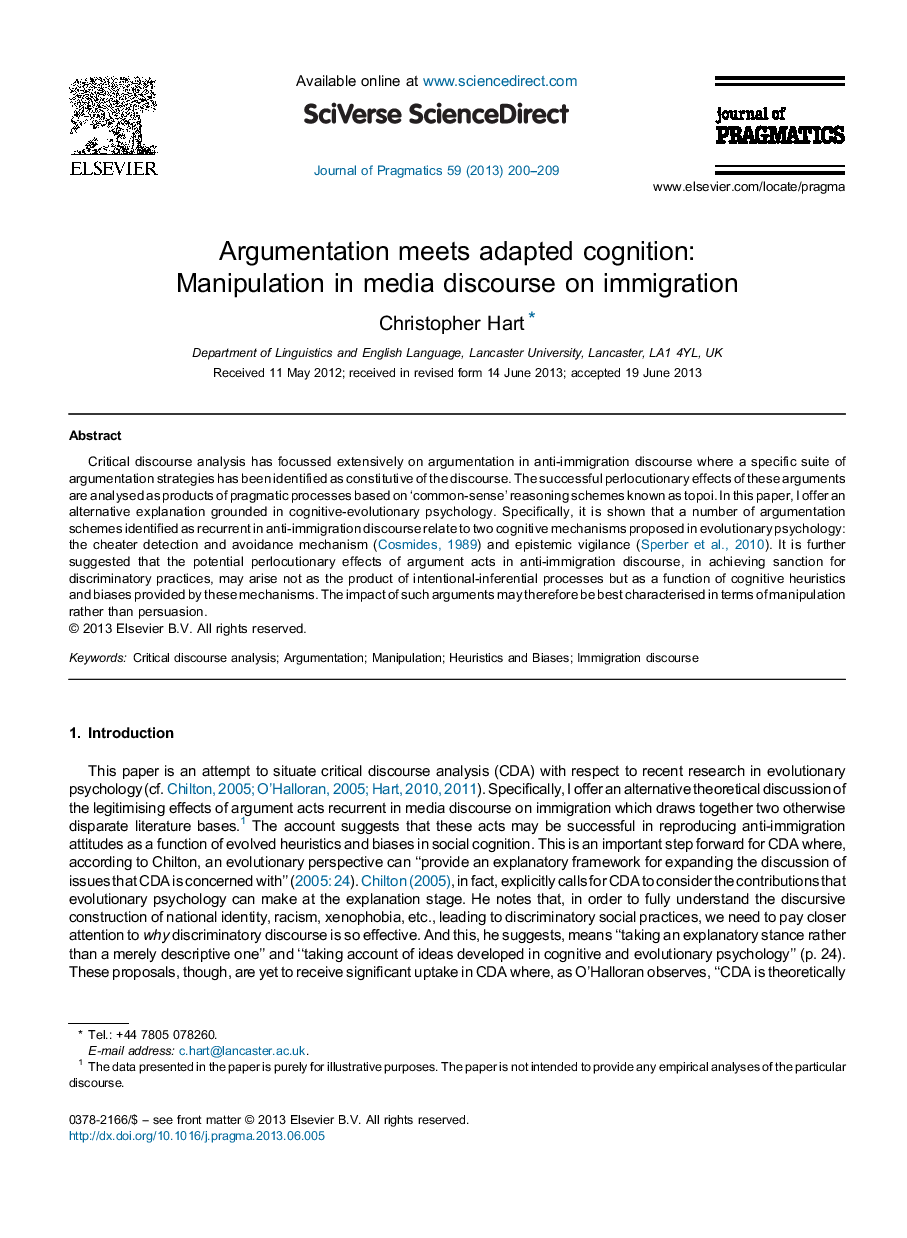| Article ID | Journal | Published Year | Pages | File Type |
|---|---|---|---|---|
| 932856 | Journal of Pragmatics | 2013 | 10 Pages |
Critical discourse analysis has focussed extensively on argumentation in anti-immigration discourse where a specific suite of argumentation strategies has been identified as constitutive of the discourse. The successful perlocutionary effects of these arguments are analysed as products of pragmatic processes based on ‘common-sense’ reasoning schemes known as topoi. In this paper, I offer an alternative explanation grounded in cognitive-evolutionary psychology. Specifically, it is shown that a number of argumentation schemes identified as recurrent in anti-immigration discourse relate to two cognitive mechanisms proposed in evolutionary psychology: the cheater detection and avoidance mechanism (Cosmides, 1989) and epistemic vigilance (Sperber et al., 2010). It is further suggested that the potential perlocutionary effects of argument acts in anti-immigration discourse, in achieving sanction for discriminatory practices, may arise not as the product of intentional-inferential processes but as a function of cognitive heuristics and biases provided by these mechanisms. The impact of such arguments may therefore be best characterised in terms of manipulation rather than persuasion.
